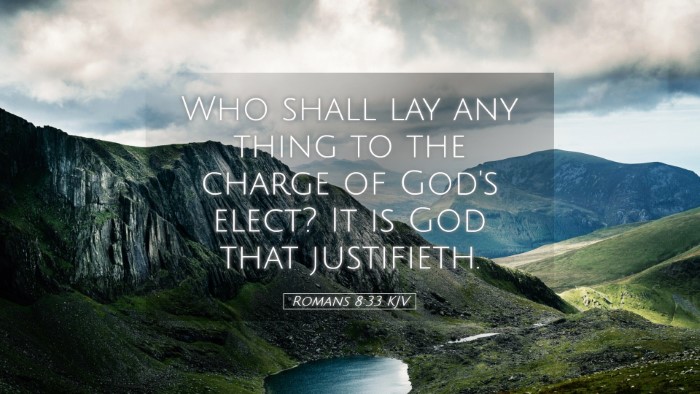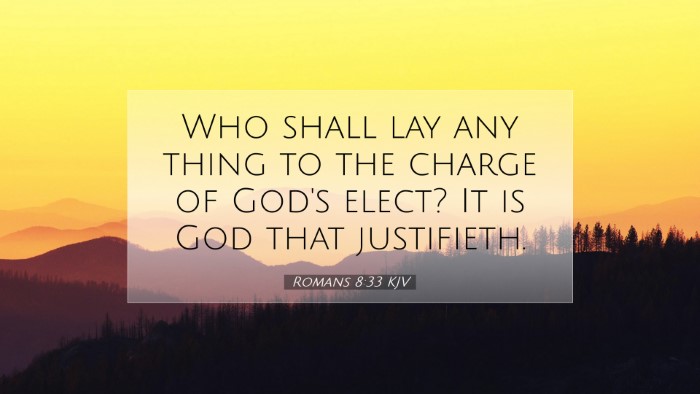Old Testament
Genesis Exodus Leviticus Numbers Deuteronomy Joshua Judges Ruth 1 Samuel 2 Samuel 1 Kings 2 Kings 1 Chronicles 2 Chronicles Ezra Nehemiah Esther Job Psalms Proverbs Ecclesiastes Song of Solomon Isaiah Jeremiah Lamentations Ezekiel Daniel Hosea Joel Amos Obadiah Jonah Micah Nahum Habakkuk Zephaniah Haggai Zechariah MalachiVerse
Romans 8:1 Romans 8:2 Romans 8:3 Romans 8:4 Romans 8:5 Romans 8:6 Romans 8:7 Romans 8:8 Romans 8:9 Romans 8:10 Romans 8:11 Romans 8:12 Romans 8:13 Romans 8:14 Romans 8:15 Romans 8:16 Romans 8:17 Romans 8:18 Romans 8:19 Romans 8:20 Romans 8:21 Romans 8:22 Romans 8:23 Romans 8:24 Romans 8:25 Romans 8:26 Romans 8:27 Romans 8:28 Romans 8:29 Romans 8:30 Romans 8:31 Romans 8:32 Romans 8:33 Romans 8:34 Romans 8:35 Romans 8:36 Romans 8:37 Romans 8:38 Romans 8:39

